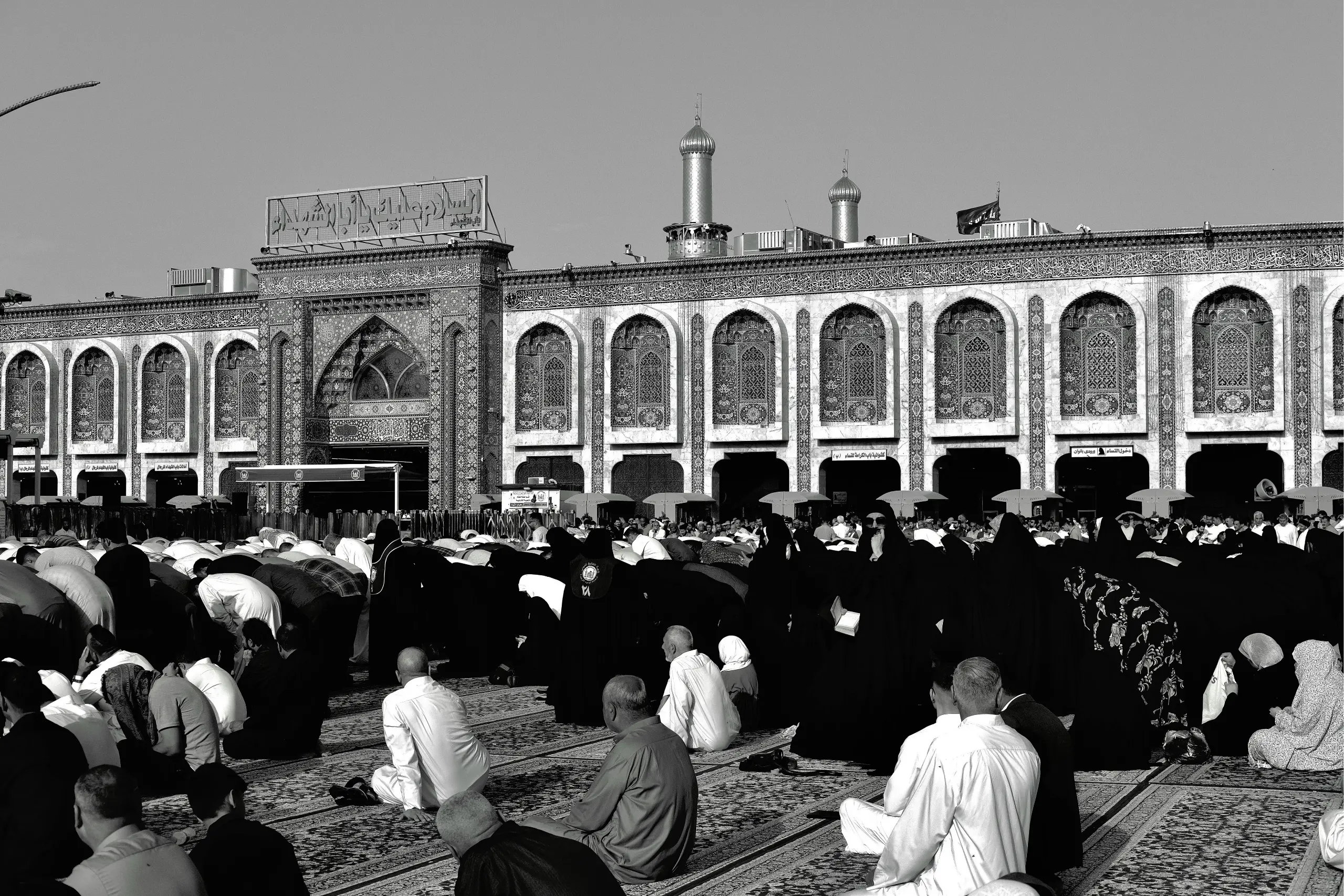When is Arbaeen (Chehlum)? 40 Days of Mourning for Imam Husayn (AS).



Forty days of unending grief
Day(s)
:
Hour(s)
:
Minute(s)
:
Second(s)
When is Arbaeen Day in 2026?
Arbaeen Day in 2026 will fall on Monday, August 14, 2026, corresponding to 20 Safar 1448 AH in the Islamic calendar.
Is Arbaeen a public holiday?
Arbaeen is a public holiday in some countries, particularly those with a significant Shia Muslim population. For example, in Iraq and Iran, Arbaeen is officially recognized as a public holiday, and government offices, schools, and businesses are closed while millions of people participate in religious processions and pilgrimages, especially to Karbala. However, in many other countries such as Pakistan, India, and Western nations like the United States, United Kingdom, and Canada, Arbaeen is not a public holiday, though it is still observed and respected by Shia Muslim communities through private gatherings and local processions.
What is the Day of Arbaeen
Arbaeen, also known as the Day of Arbaeen, is observed forty days after Ashura—the day Hussain ibn Ali was martyred in the Battle of Karbala. A revolutionary leader of the 7th century, Hussain ibn Ali stood firm for social justice, even at the cost of his life. The Arabic word “Arbaeen” translates to forty, referring to the fortieth day of mourning, a deeply rooted tradition in Islamic culture. For forty days, millions of people around the world engage in remembrance, marking the Day of Arbaeen by reflecting on the story of Hussain, his family, and his loyal companions.
History of Arbaeen day
Hussain ibn Ali, a courageous revolutionary leader of the 7th century, made a historic stand for social justice against the oppressive rule of Yazid, a corrupt ruler who violated the basic rights and dignity of the people. When Yazid demanded that Hussain acknowledge his leadership to legitimize his corrupt rule, Hussain firmly refused, driven by his unwavering moral values and principles. As a result, he and his companions were killed in the Battle of Karbala, holding fast to their honour and dignity. After the battle, Yazid’s men captured the women and children of Hussain’s family, taking them as prisoners. They were paraded in chains through cities like Damascus and Kufa, facing abuse from hostile crowds, until they were finally presented to Yazid and imprisoned. Despite these hardships, Hussain’s movement lived on through his sister Zainab and son Ali ibn Hussain, who gave powerful speeches denouncing Yazid’s corrupt regime and unsettled his ministers. Fearing public humiliation, Yazid eventually released them. Hussain’s family spent the rest of their lives spreading his message and teaching the values he upheld. According to tradition, the Day of Arbaeen marks the return of Hussain’s family to Karbala to pay tribute to the fallen heroes and mourn their loved ones.
Origin of Arbaeen
The Day of Arbaeen falls on the 20th of Safar, commemorating the 40th day after the martyrdom of Imam Husayn, alayhi as-salam, in Karbala. Since the fall of Saddam Hussein in Iraq in 2003, millions of pilgrims have traveled annually from cities like Najaf to Karbala by foot to mark this religious occasion. The Arbaeen visitation dates back to 61 Hijri, when Jabir ibn Abdilahl Ansari, a companion of the Prophet, arrived in Karbala on Safar 20 and visited the graves of Imam al-Husayn and his companions. Historical reports also mention that the caravan of Imam Husayn’s family, previously imprisoned in Damascus, was returning to Madinah and stopped in Karbala. There, they met Jabir and shared the heartbreaking details of the tragedy of Ashura, leading them to mourn the martyrs with recitations and eulogies.
One of the most recognized traditions regarding Arbaeen is a narration from Imam Al-Askari, alayhi as-salam, who stated that the signs of a true believer include offering 51 units of prayers, performing Ziarat al-Arbaeen, wearing a ring on the right hand, prostrating one’s forehead on the ground, and loudly reciting “Bismillah Al-Rahman Al-Rahim” during prayers. Additionally, Imam al-Sadiq, alayhi as-salam, encouraged his followers to visit and send salutations to Imam Husayn, alayhi as-salam, on the 40th day of his martyrdom—proving that this practice is not an innovation, but rooted in the teachings of the Prophet, salla Allahu alayhi wa alihi wa sallam, and the Imams of Ahl ul-Bayt, alayhi as-salam.
According to other narrations, walking to the Ziyarah of Imam al-Husayn, alayhi as-salam, brings immense spiritual rewards. Imam al-Sadiq stated that each step taken towards the grave of Husayn brings a thousand good deeds, erases a thousand sins, and elevates the pilgrim a thousand levels. During Saddam Hussein’s brutal regime, such pilgrimages were restricted, but after his fall, the walk was revived naturally and has since become a global phenomenon. Today, the Arbaeen walk stands as a symbol of Islamic identity and serves as a platform for spreading the message of Islam. It is now honored as one of the sacred symbols of Allah.
Arbaeen Dates (2026–2030)
| Year | Arbaeen Date | Day |
|---|---|---|
| 2026 | September 8, 2026 | Tuesday |
| 2027 | August 29, 2027 | Sunday |
| 2028 | August 17, 2028 | Thursday |
| 2029 | August 6, 2029 | Monday |
| 2030 | July 27, 2030 | Saturday |
FAQs
When is Arbaeen in 2026?
Arbaeen will be observed on Monday, August 3, 2026, which corresponds to 20 Safar 1448 AH in the Islamic Hijri calendar.
How is the date of Arbaeen determined?
Arbaeen falls on the 20th of Safar, the second month of the Islamic lunar calendar. It occurs 40 days after Ashura, the day Imam Husayn was martyred in Karbala.
Does the date of Arbaeen change every year?
Yes, because the Islamic calendar is lunar, the Gregorian date of Arbaeen shifts about 10–11 days earlier each year.
How many days after Ashura is Arbaeen observed?
Arbaeen is observed exactly forty days after Ashura, which is the traditional Islamic mourning period.
Is Arbaeen always on the same weekday?
No, since it follows the lunar calendar, the weekday changes each year in the Gregorian calendar.
What is the origin of Arbaeen?
Arbaeen originates from the Islamic tradition of observing a forty-day mourning period. It commemorates the martyrdom of Imam Husayn ibn Ali, who was killed on Ashura in 680 CE during the Battle of Karbala.
